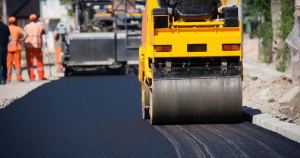Do Collision Centers Do Mechanical Repairs? Here’s What to Know.
Discover the answer to “Do collision centers do mechanical repairs?” and learn how experts handle both bodywork and internal car damage after accidents.
When people think of a collision center in Tempe, they often imagine a shop that just fixes dents, scratches, and paint damage after an accident.
Yet, several collision facilities provide a range of services beyond that, and Arizona Collision Center is notably exceptional.
Our auto repair center has been proudly serving drivers across the United States for over 20 years.
We specialize in complete vehicle restoration, from frame straightening and paint matching to detailing and even mechanical repairs.
Auto body repair, frame straightening, paint matching, detailing, mechanical repairs, and more.
Combined with our decades of experience, state-of-the-art equipment, and ASE-certified technicians.
Now, let’s dive deeper into the question: Do collision centers do mechanical repairs?
Maybe what happens behind the doors of your local collision repair shop can surprise you.
Understanding What a Collision Center Really Does
The specialty of an auto body shop, or collision center, is to fix the visible damage from accidents.
This could involve repairing crumpled panels, repainting scratched surfaces, or replacing bumpers and fenders that have snapped.
There is some damage that is not visible.
Your car’s internal systems, such as the suspension, brakes, steering, and engine alignment, can be affected by the force of impact.
That’s where mechanical repairs come in.
Specific collision sites possess the resources to handle both cosmetic and mechanical concerns.
Specific individuals may partner with certified mechanics or dealerships to execute the job.
Mechanical repairs at a collision center are contingent on the extent of damage and the shop’s capabilities.

The Difference Between Auto Body and Mechanical Repairs.
The overlap of auto body and mechanical repairs is common, especially following a serious accident.
Here’s how they differ:
- Auto body repair services enhance the car’s appearance. The list of items includes panels, paint, bumpers, and glass.
- Mechanical repairs are conducted to ensure the proper functioning of the car’s engine, transmission, brakes, and steering.
When Mechanical Repairs Are Needed After a Collision.
Visibility is often compromised after a collision. While a car may seem slick, the way it drives is entirely different.
Other than the physical appearance, there are several indications that your car may need some mechanical work:
- Unusual vibrations or noises may indicate issues with the engine or suspension.
- Poor steering could indicate an alignment or power steering malfunction.
- Sensors or internal systems may malfunction, as indicated by warning lights on the dashboard.
- Fluid may leak from a cracked radiator or transmission line.
- The appearance of uneven tire wear indicates a problem with the alignment or suspension.
How Do Collision Repair Centers Handle Mechanical Repairs?
Most modern facilities also have collision centers with technicians trained in auto body and mechanical repair.
Specialized diagnostic equipment is used by these technicians to identify any concealed mechanical issues that may have arisen during impact.
If the component, such as the radiator, A/C condenser, or suspension, is damaged, it can usually be replaced on site by the shop.
A mechanical repair specialist may be consulted by the shop for more complex problems, such as transmission or engine issues.
Some upscale collision centers prioritize technology and staff training to ensure efficient and cost-effective body and mechanical repair services.
It not only saves customers time but also ensures that every repair is done to the manufacturer’s specifications.
What Makes Mechanical Repairs After a Collision so Crucial?
Your vehicle’s safety and performance can be compromised by the internal damage caused by even minor accidents.
By undergoing mechanical repairs, your car’s functionality is maintained, not just its cosmetic appearance.
Here’s why these repairs matter:
- Your car’s safety is at risk if it has broken brakes or a steering system.
- A mismatched suspension can affect handling and fuel economy.
- Fixing mechanical issues early can prevent costly and prolonged problems in the future.
- Following a collision, insurance companies may require supplementary claims to undergo specialized mechanical inspections.
What Types of Mechanical Repairs Can Collision Centers Do?
Despite variations in shop location, these are some typical mechanical services that many collision centers offer:
- Wheel alignment and alignment issues are consequences of accidents. This is corrected at collision centers, which employ computerized alignment tools.
- Frequent front-end collisions may require the repair of radiators, hoses, and condensers in cooling systems.
- Brake System Repairs: To ensure safe stopping power, brake lines or other components can be replaced.
- Front-end affects can cause damage to air conditioning and heating systems, which many shops can replace.
- With electrical system diagnostics, wiring, and sensors are commonly damaged, but collision centers can either repair or replace these systems.
- If the impact shifts your engine or transmission, technicians can realign and secure them.
The Benefits of Getting Mechanical and Body Repairs in One Place.
If you need both mechanical and body repairs on your car, a collision center that offers both can be highly effective.
Here’s why:
- You don’t have to move your car from one shop to another.
- One team ensures quality control throughout the entire repair operation.
- No more waiting for other shops to complete the job.
- The claims process is made easier because most collision centers work directly with insurance companies.
The Impact of Technology on Modern Collision Repair.
Modern-day vehicles are equipped with modern technology, which includes sensors and electronic control modules.
Recalibrating is necessary for these systems after a collision.
Using advanced diagnostic scanners and repair equipment is now standard practice in many collision centers to check the functionality of these systems.
The demand for collision centers that can handle advanced mechanical and electronic systems is increasing rapidly, as reported by Automotive News, because of the complexity of vehicles.
Shops that invest in diagnostic technology and staff training are better equipped to handle modern repair needs.
According to the ASE, technicians must get proper technician certification to ensure safe and high-quality repairs for both mechanical and structural faults.
This is in line with industry standards.

Conclusion: How Arizona Collision Center Stands Out
Auto repair services have been provided by Arizona Collision Center for over 20 years.
We are a company that prides itself on providing precision-focused solutions to every project, and our team of certified technicians is in the U.S.
We offer comprehensive services that include collision repair, frame straightening, custom paint jobs, detailing, and mechanical evaluations.
The aim of our team is to offer drivers peace of mind following a collision. AZ Collision Center uses new tools and adheres to strict repair standards.
We guarantee every customer leaves with a car that is both visually appealing and functional.
For mechanical damage repairs, Arizona Collision Center is the place to go when you need help.
Every repair we perform is done with the intention of ensuring safety and longevity.
We have the expertise to repair your body and to provide solutions for hidden mechanical issues.
To experience genuine automotive expertise that is guaranteed to keep you safe and satisfied, contact Arizona Collision Center today to schedule a repair appointment.













